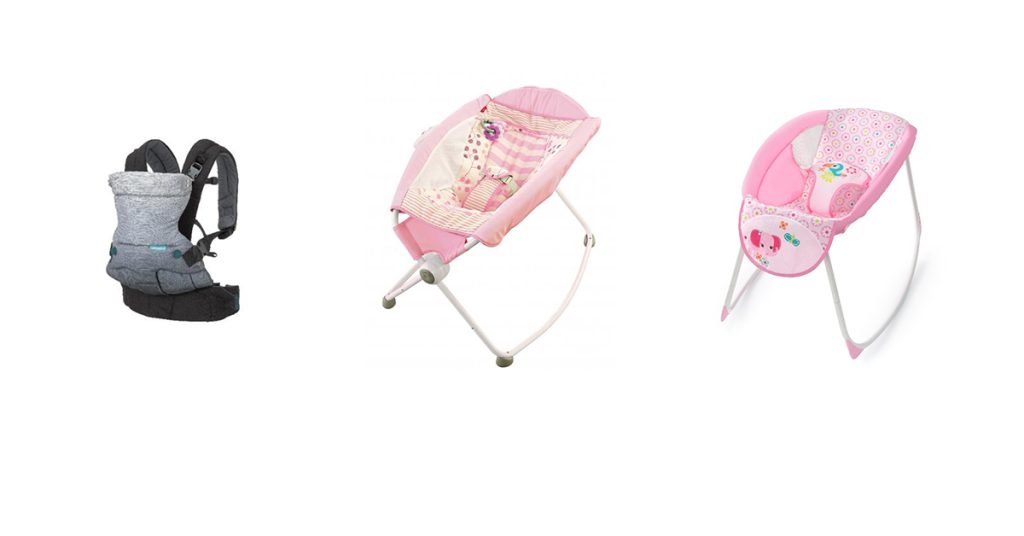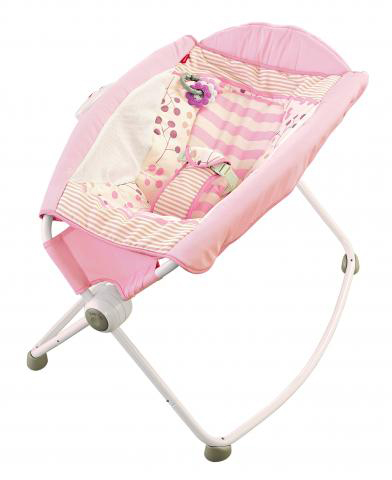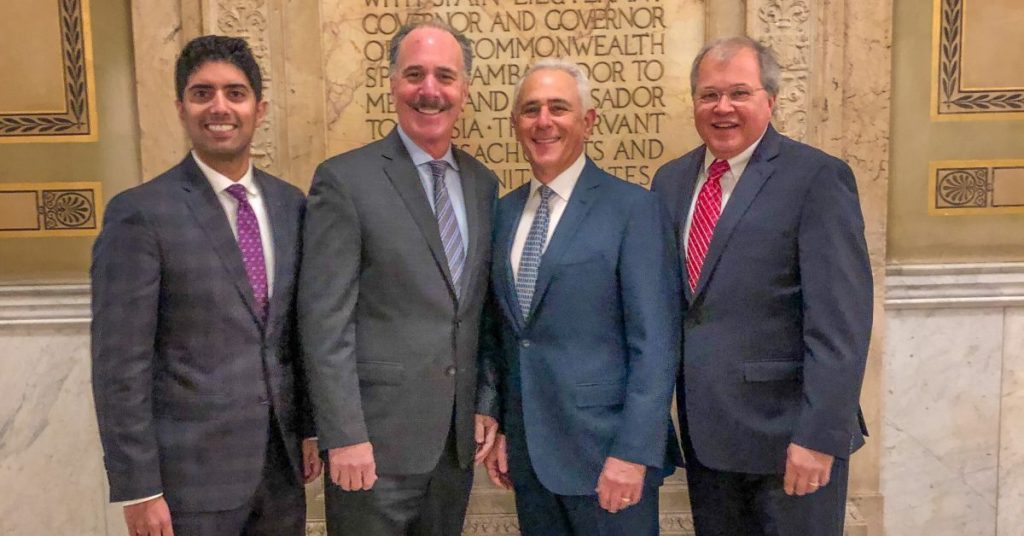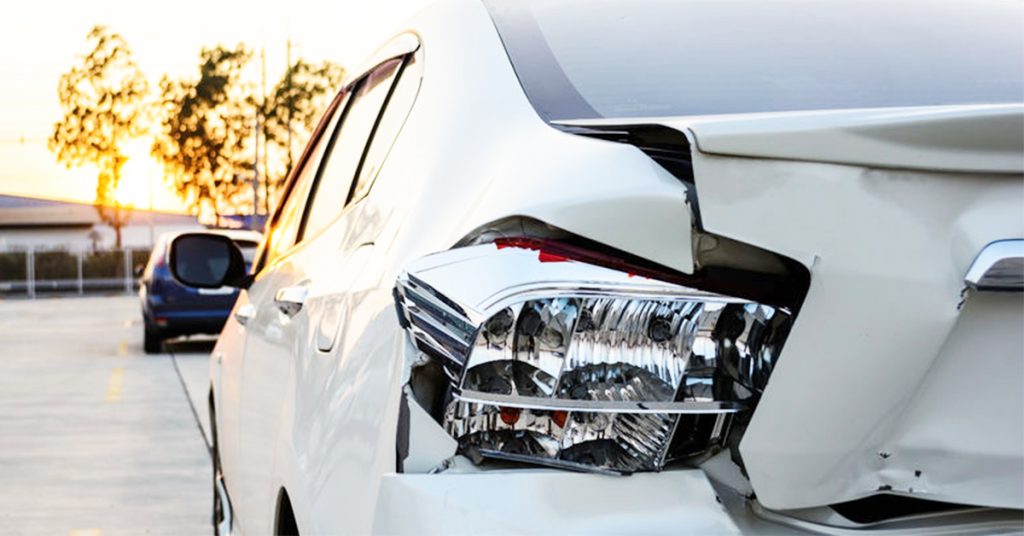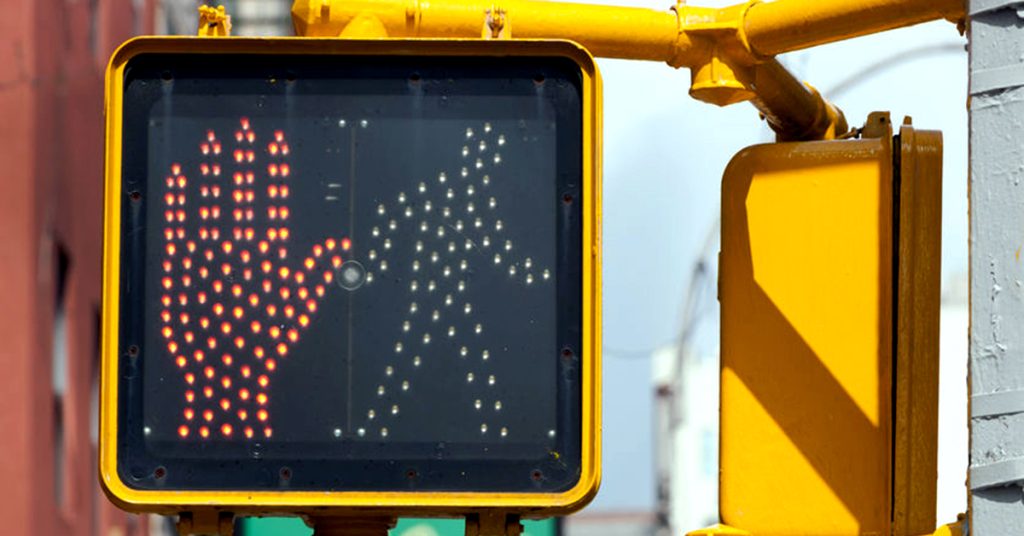Posts by Breakstone, White & Gluck
March is Brain Injury Awareness Month

March is Brain Injury Awareness Month. Take the opportunity to learn
Today, there is greater awareness around brain injuries. As a result, many people are treating brain injuries earlier and living healthier lives.
The Centers for Disease Control and Prevention (CDC) observes Brain Injury Awareness Month in March, to provide education about potential concussion symptoms, ongoing research and the needs of those living with a brain injury. This comes at the right time for families, as many children and teenagers plan to participate in spring sports.
Many brain injuries are caused by car accidents, falls or violence. But over the past decade, we have learned more about young children and student athletes suffering concussions on the sports field. In fact, from 2010 to 2016, nearly two million children were treated in emergency rooms for sports-related traumatic brain injuries (TBI), according to the CDC website. Sports associated with the highest number of ER visits: football, cycling, basketball, playground activities and soccer.
Among males 17 and younger, football was involved in 27 percent of all sports-related TBI visits to the ER, more than any other activity. In the same age group, females playing soccer, playground activities and basketball made the highest number of ER visits for TBI. Among children under 5, playground activity resulted in the most ER visits for TBI.
As we continue learning about injuries to children and student athletes, research continues to show older Americans are highly vulnerable to brain injuries. They are the most likely to be hospitalized for TBIs, according to the CDC.
At Breakstone, White & Gluck, our attorneys encourage you to look at the CDC website so you can be informed about the symptoms of traumatic brain injury and concussion. If you observe symptoms in yourself or your children, immediately call your doctor to be examined. Also guide older family members to medical treatment. This is paramount because a brain injury left untreated can result in long-term impairment or death. When someone receives immediate treatment, effective diagnosis and management early on is critical.
What is a Traumatic Brain Injury?
According to the CDC, a traumatic brain injury can be caused by a bump, blow or jolt to the head. There are traumatic brain injuries and mild traumatic brain injuries, which are often called concussions.
What are the Symptoms of a Traumatic Brain Injury?
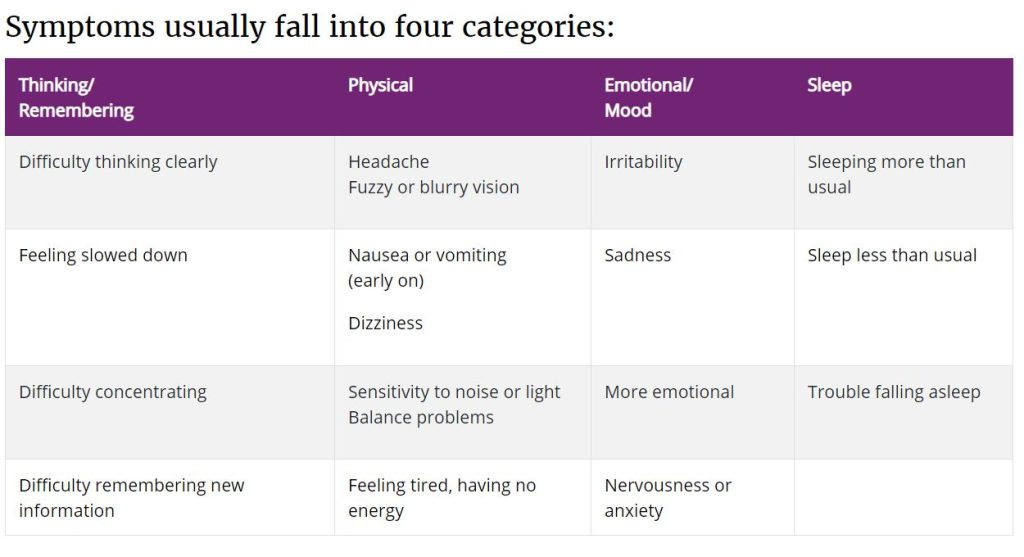
Concussion Symptoms. Courtesy CDC Website
You may observe some of these symptoms immediately after someone sustains a brain injury. Or symptoms may not emerge for several days. It’s also important to note that not everyone experiences the same symptoms.
Symptoms include difficulty thinking, concentrating or remembering or feeling slowed down.
Physical symptoms may include headaches, nausea, vomiting or fatigue. Some people are sensitive to noise or light. Others have trouble balancing themselves.
When someone suffers a head injury, it’s common for their sleep to be disrupted. They may sleep more or less than normal. Another sign is having trouble falling asleep. More extreme emotions are another symptom. The person may be irritable, sad, more emotional or exhibit high anxiety and nervousness.
Younger children may exhibit some of the above symptoms, but parents should also watch for crying inconsolably, more temper tantrums or getting easily upset and having trouble keeping up with skills they are learning (toilet training for instance). They may also lack interest in their normal activities.
Sports-Related Concussions and TBI in Massachusetts
Be aware of how concussions happen. After a car accident or truck accident, always receive immediate medical attention to make sure you have not suffered a TBI. When an elderly relative slips or a child falls on the playground, check in with the doctor. Do this anytime you observe someone suffer from any type of physical impact to the head.
When you sign your child up to play a sport, ask the coaches for the concussion protocol. In Massachusetts, middle and high schools are required to have documented procedures regarding concussion injuries and prevention. Passed in 2010, M.G.L. c.111 § 222 requires parents and students to participate in concussion awareness training so they can recognize symptoms and receive early treatment. The law also requires students to be removed from play if they may have suffered a concussion. They can only return with medical clearance.
Under the law, public middle and high schools and those subject to Massachusetts Interscholastic Athletic Association (MIAA) regulations must have concussion protocols. Other sports leagues are not required under Massachusetts law, but they should all have a concussion policy on their website.
Final Note
- At home, educate older children about TBI symptoms. Ask them questions when you sense something may be off and use the above chart to determine whether you may need to call the doctor.
- Ask for concussion safety protocols at schools and daycare centers, and when children participate in sports leagues. Attend concussion trainings.
- Watch younger children and older adults closely. Remember young children may not be able to communicate symptoms and pain with you and older adults may not recognize symptoms in themselves, especially if they have other medical conditions.
- Recruit as many family members as you can in watching for signs in young children, teens and the elderly.
- Visit some of the online resources below and share them with family members.
Concussion Prevention Resources for Families
Massachusetts Law on Concussion Prevention in Sports
105 CMR 201.00: Head injuries and concussions in extracurricular activities
Additional Resources
Heads Up to Brain Injury Awareness Training, CDC
Facts About Concussion and Brain Injury – Where to Get Help, CDC (a resource for all ages)
Sports Related Concussions and Head Injuries, Mass.gov
Concussion Trainings, Massachusetts Department of Public Health
Returning to School After a Concussion, Mass.gov
About Breakstone, White & Gluck – Boston Personal Injury Lawyers
With more than 100 years combined experience, Breakstone, White & Gluck of Boston is one of the most respected personal injury law firms in Massachusetts. Our attorneys represent individuals who have suffered traumatic brain injuries or mild traumatic brain injuries due to the negligence of another individual, organization or corporate entity.
If you have been injured, learn your legal rights for seeking financial compensation and obtaining medical care. For a free legal consultation, call Breakstone, White & Gluck at 800-379-1244 or 617-723-7676 or you can use our contact form.
Massachusetts Considers Red Light Cameras to Catch Traffic Offenders

Massachusetts lawmakers are considering legislation to allow communities to install red light cameras.
In Massachusetts, drivers are getting a strong warning to slow down this week as the state Senate debates red light cameras.
The state Senate is scheduled to debate legislation proposed by Sen. William Brownsberger and redrafted by the Ways and Means Committee.
The proposed bill would grant Massachusetts cities and towns new authority to install automated camera systems to capture vehicles that violate traffic laws at intersections, according to The Boston Globe. The goal is safer roads; the AAA Foundation for Traffic Safety has reported red light cameras have contributed to a 14 percent reduction in traffic deaths at intersections.
Drivers who violate traffic laws could end up receiving a citation and fine, without ever being stopped by a police officer. The fine would be $25 and tied to the vehicle registration. The person listed on the vehicle registration will receive the traffic citation, not necessarily the person driving at the time. Violations would not count toward Massachusetts auto insurance surcharges.
This is an important proposal and drivers, cyclists and pedestrians want to watch this week. Many, many traffic crashes happen in intersections, when drivers speed through lights, veer out of their lanes or neglect to give cyclists and pedestrians enough space. At the same time, there are many concerns about privacy and how broad laws should reach.
Beyond Massachusetts, 20 states have passed laws allowing red light cameras, according to the Governors Highway Safety Association. These states stand divided on authority; 11 states fully permit use while 9 states only allow use in specific situations.
Massachusetts Red Light Camera Legislation
Under the Massachusetts proposal, communities could install one traffic camera for every 2,500 residents. Signs must be posted and visible warning drivers approaching the intersection.
To address privacy concerns, communities would be directed to capture photos without identifying the driver or passengers in the vehicle, or any of their belongings. Photographs would be destroyed within 48 hours.
Drivers can be cited for failure to stop for a red light, making an illegal turn at a red light or speeding. Drivers may be cited for traveling at least 5 miles per hour over the speed limit. There will be an appeals process for drivers.
The law should not impact green light or yellow light laws. Lawmakers wrote in language that says a vehicle can be across the line during a yellow light, according to the Globe report.
Communities will be compensated for the costs of installation and operating the camera system. The state’s Transportation Trust Fund will receive the rest of the revenue from citations.
History of Opposition for Red Light Cameras in Massachusetts
Massachusetts has long opposed the idea of red light cameras due to privacy concerns. More than a decade ago, individual communities attempted to lobby state legislators for the right to install traffic cameras, without success.
But now, growing traffic safety concerns has rekindled proposals in Massachusetts and across the country.
- Last year, the AAA Foundation for Traffic Safety reported red light running crashes have reached a 10-year high in the U.S.
- Fatal red light car crashes have increased 28 percent since 2017.
- About 35 percent of the victims were the drivers who thought they could race through the red light.
AAA Recommendations for Red Light Camera Use
AAA recommends communities install traffic cameras at intersections with demonstrated patterns of red light violations or crashes. Before launching red light cameras, communities should have established overall traffic safety and engineering plans, AAA says. Law enforcement should directly supervise red light cameras and drivers should be given fair notice with traffic signs and other outreach.
Breakstone, White & Gluck – Free Legal Consultation
Breakstone, White & Gluck provides aggressive and experienced representation to those injured or killed by the negligence of others. Our attorneys have been consistently recognized for their results for our clients, including as Top 100 New England Super Lawyers, Top 100 Massachusetts Super Lawyers and by Best Law Firms as a Tier 1 Firm in Personal Injury and Medical Malpractice in the Boston Metropolitan region.
If you have been injured, learn your legal rights. Contact our car accident lawyers today at 800-379-1244 or 617-723-7676. You can also use our contact form.
Baby Carriers Are Latest Children’s Product Recall
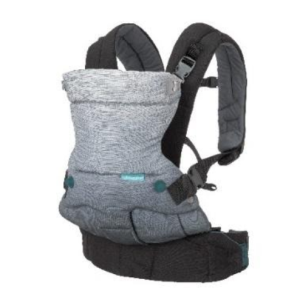 Parents place a great deal of trust in baby carriers to support their children. However, you should now check yours because it may not be as safe as you think.
Parents place a great deal of trust in baby carriers to support their children. However, you should now check yours because it may not be as safe as you think.
The Consumer Product Safety Commission (CPSC) issued a Feb. 6th recall notice for about 14,000 Infantino baby carriers sold by Amazon and Target between Nov. 15 and Dec. 20, 2019. Because the recalls took place over the holiday season, parents could have purchased a baby carrier or received one as a holiday gift.
While no injuries have been reported, the buckles on the infant carriers can break, causing a child’s fall. Parents should stop using the front-facing baby carriers and request a free replacement.
The Infantino carriers have a black or gray body, with black straps, and a front pocket. Look for the code sewn inside the carrier. This is the place to start because baby carriers often look similar.
|
Go Forward 4-in-1 Evolved Ergonomic Carrier |
2018 0619 |
|
Go Forward 4-in-1 Evolved Ergonomic Carrier |
2018 0719 |
|
Flip Front2back Carrier |
2018 0719 |
|
Up Close Newborn Carrier |
2018 0719 |
High Rate of Children’s Products Recalls
As you check if your baby carrier was recalled, look around your home for other children’s products, such as strollers, car seats, cribs and other baby furniture. Take a minute to visit the CPSC website and type in the product name. This is a good time of year to check children’s products because you may be using some of them more in the nice weather.
Children’s products have a high rate of recalls so it is best to check a few times of year and follow the news and the CPSC website. Manufacturers do not always contact parents directly and there are times parents may be using a hand-me-down recall product, making it harder to track product recalls or news about injuries.
But so far, 2020 has been a year to follow recall news. Just as the holiday season ended, a series of children’s product recalls began. On January 16th, the CPSC announced the recall of 2,000 “Baby Trend” strollers sold by Amazon and Target. Those too could drop children should the stroller hinge joints release and collapse under pressure.
Then on January 29th, the CPSC announced the recall of 165,000 infant sleepers from Summer Infant, Graco, Delta Enterprise Corp. and Evenflo. The inclined sleepers are the latest recalls in the wake of the Fisher-Price Rock ‘n Play, which was recalled in April 2019.
As authorities continue to investigate, families have reported more than 70 infant deaths in inclined infant sleepers. University of Arkansas researchers have studied these sleepers and recommended infants sleep on flat surfaces or less than a 10 degree incline if any. The Fisher-Price Rock ‘n Play and other sleepers placed children at a 30 degree incline, creating a risk for suffocation when infants attempted to turn.
Free Legal Consultation – Boston Product Liability Lawyer
Breakstone, White & Gluck has obtained record results for plaintiffs in Massachusetts cases involving personal injury, medical malpractice and product liability. If you or a loved one has been injured by an unsafe or defective product, our attorneys can advise you of your legal rights to seek compensation. For a free legal consultation, contact our product liability attorneys at 800-379-1244 or 617-723-7676 or use our contact form.
Infant Sleeper Recalls Continue Nearly a Year After Fisher-Price
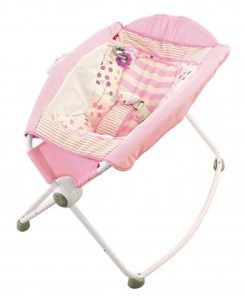
Nearly a year after the Fisher-Price Rock ‘n Play recall, the work continues to remove unsafe sleepers from the market.
After more than 70 infant deaths involving inclined sleepers, the Consumer Product Safety Commission (CPSC) and lawmakers continue working to prevent injuries.
The CPSC recently announced the recalls of over 165,000 infant sleepers from four companies: Summer Infant, Evenflo, Delta Enterprise Corp. and Graco. Thankfully, these recalls are not related to any deaths or injuries. They are part of the CPSC’s ongoing work to protect children after Fisher-Price’s startling revelations about its Rock ‘n Play, which has been linked to dozens of infant deaths. However, these models have not been linked to injuries, according to the CPSC and at least one company initially refused the CPSC’s efforts.
Graco is recalling the largest number of units, 111,000 Graco Little Lounger Rocking Seats. Sumr Brands is recalling 43,000 SwaddleMe By Your Bed Sleepers. Delta Inclined Sleepers is recalling about 5,900 units and Evenflo has about 3,100 units involved in the recall.
If you own one of these sleepers, you can read the recall notices on the CPSC website. You should be able to contact the manufacturer and return your sleeper for a cash refund or a voucher.
Consumers are urged to stop using the inclined infant sleepers. It is better to return the infant sleepers, rather than discard them in the trash.
Fisher-Price Rock ‘n Play
Parents received the first frightening warning about inclined infant sleepers last April, when Fisher-Price issued an advisory for parents, initially announcing 10 babies had died in the sleeper after turning from their back to their stomach, then suffocating. The company warned parents not to let children use the sleeper after 3 months old.
Within days, facing outrage from parents and new allegations, Fisher-Price acknowledged more deaths and had to replace its advisory with a recall notice for 4.7 million Rock n’ Play sleepers. Because this product was sold for 10 years, this has been a massive recall. Adding to the challenge is so many companies have followed Fisher-Price’s lead and developed similar inclined sleep products.
After Fisher-Price, we learned that Kids II was also facing allegations that several infants had died in its sleepers. The company recalled 700,000 products in late April, just a few weeks after Fisher-Price took action.
Federal Legislation to Ban Inclined Sleepers
The CPSC has been working with other companies to identify unsafe sleepers while advising consumers not to use inclined sleep products. The Fisher-Price sleeper and other models are dangerous because they sit at a 30 degree incline. Babies can roll over and suffocate. The American Academy of Pediatrics (AAP) advises parents to put infants on flat surfaces to sleep and remove blankets, toys and other items. Researchers from the University of Arkansas have also recommended flat surfaces for sleeping and have said any incline should fall under 10 degrees.
Federal legislation has been proposed to ban inclined these sleepers altogether. According to Consumer Reports, the Safe Sleep for Babies Act has already passed in the House of Representatives. If this happens, the CPSC will not have to pursue product recalls one by one and negotiate with each manufacturer.
Boston Product Liability Lawyers – Boston Personal Injury Lawyers
Free Legal Consultation
Breakstone, White & Gluck has over 100 years combined experience representing those injured by the negligence of others in Massachusetts. Our attorneys have extensive experience in the area of product liability and defective products. For a free legal consultation, contact our firm at 800-379-1244 or 617-723-7676 or use our contact form.
Attorney Reza Breakstone Featured in LexisNexis Attorney Spotlight Series
 Attorney Reza Breakstone was recently featured in the LexisNexis Attorney Spotlight Series and discussed specialization, referrals and reviews. Read the article on the LexisNexis website or the PDF version.
Attorney Reza Breakstone was recently featured in the LexisNexis Attorney Spotlight Series and discussed specialization, referrals and reviews. Read the article on the LexisNexis website or the PDF version.
State of Massachusetts Releases Education Materials on New Hands-Free Driving Law

Hand-held cell phone use becomes illegal in Massachusetts on Feb. 23, 2020, when the new hands-free law takes effect.
The state of Massachusetts has published a new web page and pamphlet on the new hands-free driving law, which takes effect on Feb. 23rd.
While Massachusetts passed a texting while driving ban in 2010, it was the final New England state to enact hands-free legislation in November. When the new law at last takes effect, drivers will be prohibited from using cell phones and electronic devices, unless they are in hands-free mode or they have to call 911 for an emergency.
Distracting driving is a serious safety threat on the roads, causing 9 deaths and more than 1,000 injuries each day in U.S. traffic crashes, according to the CDC. This goes beyond just cell phone use. Think of it as any activity which takes your eyes off the road, your mind off the road or your hands off the wheel.
Texting while driving and cell phone use cause many injuries each year. If the news stories have not deterred you, the new Massachusetts hands-free law should; it is about to become much easier for police to identify drivers who are using cell phones illegally.
Penalties for violating the Massachusetts hands-free law:
For a driver’s first offense, there is a $100 fine. The second offense carries a $250 fine and drivers must complete a distracted driving education program. Third and subsequent offenses can lead to a $500 fine and drivers will have to attend the education program. At this point, drivers can also face an insurance surcharge.
What becomes illegal under the Massachusetts hands-free law:
No Holding Your Cell Phone. Cell phones must be mounted or installed in your vehicle before you use hands-free technology or voice-to-text communication. Drivers can only touch their cell phones to make an initial swipe to activate hands-free mode.
No Touching Your Cell Phone Screen. Drivers cannot touch cell phones to email, check social media or watch video. All other Internet use and app use is also banned.
Get Your GPS Ready. GPS is a critical tool for many drivers. Going forward, be aware that you can only activate your GPS from an electronic device which is installed in your vehicle or properly mounted on the dashboard.
No Cell Phone Use at Red Lights. You can only pick up your cell phone if your car is stationary and safely outside the travel lane. Hand-held cell phone use at stop signs and red lights is a violation. Along with drivers, cyclists are also banned from using hand-held electronic devices.
Visit the state of Massachusetts web page to learn more.
Our Final Note
Massachusetts drivers must continue to use caution under the new hands-free law. Even if you follow the law, hands-free doesn’t mean distraction- or accident-free.
Free Legal Consultation – Boston Personal Injury Lawyers
Breakstone, White & Gluck is a Boston personal injury law firm with extensive experience handling Massachusetts car accident claims for those injured by negligent driving. If you have been injured, our attorneys are here to advise you of your rights to file a claim against the driver or another party who may be at fault. For a free legal consultation, call Breakstone, White & Gluck at 800-379-1244 or 617-723-7676. You can also use our contact form.
Breakstone, White & Gluck Joins Walk to The Hill at Massachusetts State House
 Our attorneys participated in the Equal Justice Coalition’s Walk to the Hill this morning at the Massachusetts State House. Marc L. Breakstone, David W. White, Ronald E. Gluck and Reza Breakstone joined hundreds of other attorneys in urging state lawmakers to raise state funding for civil legal aid.
Our attorneys participated in the Equal Justice Coalition’s Walk to the Hill this morning at the Massachusetts State House. Marc L. Breakstone, David W. White, Ronald E. Gluck and Reza Breakstone joined hundreds of other attorneys in urging state lawmakers to raise state funding for civil legal aid.
Last week, Gov. Charlie Baker released his FY2021 budget and proposed a level budget of $24 million for civil legal aid. The Equal Justice Coalition, the Massachusetts Legal Assistance Corporation and supporters are seeking a $5 million increase and that’s why our attorneys participated today. Civil legal aid provides legal assistance to low-income Massachusetts residents who need help with housing, employment, medical care, immigration matters and domestic abuse. It is the last resort for many families, children and the elderly. Advocates say it’s life-changing for people, creating stability and opportunity to stay in their homes and keep working.
The Equal Justice Coalition says civil legal aid organizations are being forced to turn away many Massachusetts residents in need due to funding.
“Investing in civil legal aid is just and makes good economic sense,” the coalition says.
Read more about the Equal Justice Coalition’s work.
Protecting Yourself Before and After a Car Accident in Massachusetts

Breakstone, White & Gluck offers a series of new articles to help you understand your rights and responsibilities under your Massachusetts auto insurance policy. As part of these articles, we share tips on how to buy more coverage to help yourself or your family members should you ever be injured or your vehicle damaged. Another driver may be at fault, but if they are uninsured or underinsured, you may need to look to your own auto insurance policy.
Getting Started with Massachusetts Auto Insurance
When someone buys a car, they learn a tough lesson: auto insurance can be costly for Massachusetts drivers. But under Massachusetts law, drivers are required to purchase an auto insurance policy and this is essential if you are injured in a car crash. Our Boston car accident lawyers share tips for getting started.
Infographic: What You Need to Know About Auto Insurance in Massachusetts
Our infographic explains Personal Injury Protection (PIP) benefits and our recommendations for Bodily Injury Coverage, Underinsured and Uninsured Motorist Coverage and Medical Payments Coverage.
How to File a Massachusetts Motor Vehicle Crash Operator Report
While we hope you are never involved in a crash, drivers can take a few minutes to familiarize themselves with the Massachusetts motor vehicle crash operator report. It is your responsibility to submit this form to your auto insurer if you are involved in a car accident resulting in more than $1,000 property damage or injury.
More Auto Insurance Articles
Still have a question? Please visit our website, where we have more articles on insurance coverage for drivers, bicyclists and motorcyclists.
Free Legal Consultation
Breakstone, White & Gluck – Boston Car Accident Lawyers
Breakstone, White & Gluck represents those injured in car accidents, truck crashes and other traffic incidents across Massachusetts. Our firm is based at 2 Center Plaza across from Boston City Hall and we offer a free legal consultation by telephone. Contact our firm today at 800-379-1244 or 617-723-7676 or use our contact form.
Getting Started with Massachusetts Auto Insurance
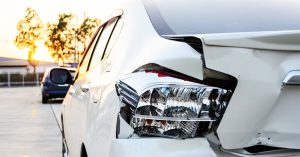 When someone buys a car, they learn a tough lesson: auto insurance can be costly and confusing for Massachusetts drivers. There are unfamiliar terms, contract language and many of us do not understand the coverages we need to buy – and how much of these coverages. But drivers are required to purchase an auto insurance policy in Massachusetts.
When someone buys a car, they learn a tough lesson: auto insurance can be costly and confusing for Massachusetts drivers. There are unfamiliar terms, contract language and many of us do not understand the coverages we need to buy – and how much of these coverages. But drivers are required to purchase an auto insurance policy in Massachusetts.
In this article, our Boston car accident lawyers share tips for getting started with your Massachusetts auto insurance policy.
What is a Massachusetts Auto Insurance Policy?
- What is a Massachusetts Auto Insurance Policy?
- Do I Need to Buy a Massachusetts Auto Insurance Policy?
- Do I Need to Purchase Other Types of Massachusetts Auto Insurance Coverage?
- What Happens if I Do Not Purchase Auto Insurance in Massachusetts?
- What if An Auto Insurance Company Refuses to Sell Me An Auto Insurance Policy?
- How Can I Lower My Auto Insurance Premium in Massachusetts?
- Are My Family Members Covered by My Auto Insurance Policy?
- How Do I Keep My Auto Insurance Policy in Good Standing in Massachusetts?
- What Should I Do if I am Injured in a Car Accident in Massachusetts? Do I Need to Contact My Auto Insurance Company?
What is a Massachusetts Auto Insurance Policy?
Your Massachusetts auto insurance policy is a contract between you and your auto insurance company. You agree to pay a premium and follow the terms of the policy. Your insurance company will pay for certain costs associated with a car accident and other damage.
Do I Need to Buy a Massachusetts Auto Insurance Policy?
- You may purchase your policy directly from the company or through an auto insurance agent.
- Shop around; Different insurers now offer different discounts and pricing since Massachusetts deregulated the industry in 2008 and moved to “managed competition.”
- After you purchase auto insurance, you should carry your policy number with you and keep it in your car along with your state motor vehicle registration.
- Make sure you file away the Coverage Selections Page you receive. This shows your policy number and the coverages you have purchased.
Do I Need to Buy a Massachusetts Auto Insurance Policy?
Yes, you need to purchase a Massachusetts auto insurance policy. Under Massachusetts law, you must purchase the “compulsory” mandatory coverages, including:
Bodily Injury to Others
$20,000 per person;
$40,000 per accident
Do I Need to Purchase Other Types of Massachusetts Auto Insurance Coverage?
Personal Injury Protection
$8,000 per person, per accident
Bodily Injury Caused by an Uninsured Auto
$20,000 per person;
$40,000 per accident
Damage to Someone Else’s Property
$5,000 per accident
Do I Need to Purchase Other Types of Massachusetts Auto Insurance Coverage?
Drivers can buy additional optional types of coverage. These are recommended but not required by law. Optional coverages include:
- Bodily Injury
- Medical Payments
- Uninsured/Underinsured
- Property Damage
- Collision Comprehensive
We write about these coverage types on Breakstone, White & Gluck’s website. You can also click on our infographic below.
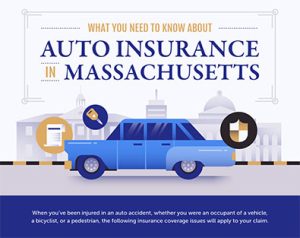
Click to view our infographic on buying Massachusetts auto insurance.
Our attorneys recommend you purchase as much auto insurance as you can afford and may need to cover your expenses if you were injured in a motor vehicle accident. This may include your medical bills, lost wages and other expenses.
As many drivers learn, the mandatory coverages are not enough to adequately cover the high costs after a crash – for financial losses associated with an injury and/or damage to a motor vehicle. Each year, we represent drivers who have been hit and injured by uninsured drivers.
If this happens to you, you too will have to look to your own auto insurance policy.
What Happens if I Do Not Purchase Auto Insurance in Massachusetts?
This is a serious offense. Under M.G.L. c. 90, § 34J, drivers may face potential penalties and fines if they are convicted or plead guilty to operating an uninsured motor vehicle. This charge may be brought against drivers caught operating their own vehicle without insurance as well as those who allow others to drive their vehicles without coverage.
Drivers can face fines of $500 to $5,000 and up to one year of imprisonment in a house of correction. The Registry of Motor Vehicles can also suspend a driver’s license for up to 60 days for a first offense and up to a year for second and subsequent offenses.
What if An Auto Insurance Company Refuses to Sell Me An Auto Insurance Policy?
Auto insurers can refuse to sell you auto insurance based on non-discriminary grounds and they can set their rates based on your driving history, where you live and other factors. They cannot, however, refuse based on your gender, race, national origin, marital status, religion, occupation or age. It is also against the law for an auto insurer to refuse to sell you a policy based on your income or information from a credit reporting agency.
Before you purchase auto insurance, read the Massachusetts Consumer Bill of Rights for Auto Insurance. This will help you respond if you are denied or want to question the auto insurer about their rates.
If an auto insurers turns you away, you can still purchase coverage through another company or the Massachusetts Auto Insurance Plan (MAIP). You automatically become eligible for this coverage if an insurer refuses to sell you a policy.
How Can I Lower My Auto Insurance Premium in Massachusetts?
Do your research online and learn your options for auto insurance discounts. You may qualify for discounts based on your driving record or organizations you belong to (such as AAA) or if you are 65 or old. Your teen may be eligible for discounts for getting good grades.
Ask about discounts when you meet an insurance agent. Discounts may vary between agents and you do not want to start working with an agent unless they offer the discounts you want.
Are My Family Members Covered by My Auto Insurance Policy?
Make sure you understand who is covered to drive your motor vehicle. Your auto insurance policy must list all licensed drivers in your household, even drivers who have their own auto insurance policies. You can exclude a member of your family by submitting an exclusion form.
You may be asked to list other drivers who use your vehicle. Work closely with your auto insurance agent on this point so you will have coverage if you need it.
How Do I Keep My Auto Insurance Policy in Good Standing in Massachusetts?
Read your policy before you sign it and ask your insurance agent questions. Ask as many questions as you need so you are aware of what you must do to stay in good standing.
If you move, update your address with your insurer promptly. Garaging a vehicle in another location may void your auto insurance. To avoid this, let your insurance agent know if you move to another home or apartment or when your teen heads to college and takes a car. This notification should be done promptly, within a few days.
Beyond this, follow state laws. Always operate with reasonable care. Do not speed or use your cell phone while driving. Pay your Massachusetts vehicle excise taxes on time. Keep your license and motor vehicle registration in your car, accessible if you are stopped by a police officer. Respond to traffic tickets and parking tickets promptly.
What Should I Do if I am Injured in a Car Accident in Massachusetts? Do I Need to Contact My Auto Insurance Company?
Review your auto insurance policy with your agent so you understand before an accident happens. You are required to notify your auto insurance company if you have been in a car accident resulting in property damage, injury or death. Massachusetts is a no-fault state and your auto insurer is responsible for paying your initial medical bills and lost wages under your PIP benefits coverage. But you have to alert your insurer that you have been injured to start this process.
If you have suffered serious injuries, it is important to consult an experienced Boston car crash lawyer to help you learn your legal rights. Contact Breakstone, White & Gluck of Boston for a free legal consultation at 800-379-1244 or 617-723-7676. You can also use our contact form.
Beware: The Most Dangerous Pedestrian Street Crossings in Massachusetts
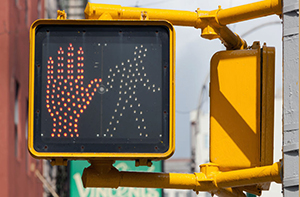
Pedestrians walk safer in Massachusetts communities which utilize pedestrian traffic signals to reduce the risk of crashes.
Pedestrian safety is always an important topic. But in Massachusetts, the topic is most critical during the winter months, when a large number of pedestrian accidents happen.
First, everyone on the road – drivers, pedestrians and cyclists – must use reasonable care and follow traffic laws. Then, take another careful look at intersections and school zones you travel through. Read traffic signs and find the crosswalk markings. They may not be as visible during snow conditions, at night or when a large truck is in the next lane. Make sure to stop well before the crosswalk.
Under Massachusetts law, pedestrians have the right of way when they are in a crosswalk and the “Walk” signal is operational. When there is no signal, drivers shall yield the right of way to pedestrians.
Finally, learn where pedestrian accidents and crosswalk accidents have happened in Massachusetts. Read the list below and take away any insights you can to protect yourself, older parents and young children.
Lynn
From 2007 to 2016, the Massachusetts Department of Transportation (MassDOT) reported the highest numbers of pedestrian crashes were in Lynn. The downtown area – the roads along Washington Street, Central Avenue and Union Street – saw a total of 321 pedestrian crashes, including 223 incidents which resulted in injury or death. There were another 98 crashes without injuries.
Chelsea
The area approaching the Tobin Bridge saw 260 pedestrian crashes over the same decade. The crash cluster included Chestnut Street, Cherry Street, Ash Street and Everett Avenue. These reports included 192 pedestrian crashes resulting in injury or death and 68 other incidents with no injury reports.
Fall River
MassDOT reported North Main Street and surrounding streets had the third highest number of pedestrian accidents. There were 143 pedestrian injuries and deaths. This cluster included North Main Street then stretched over Interstate 195 to Columbia Street, Hope Street, down to Peckham and Palmer streets.
Cambridge
Central Square is one of the busiest pedestrian walking areas in all of Massachusetts. Central Square and nearby streets ranked fourth for pedestrian accidents in Massachusetts. With 143 total crashes, this cluster includes Lansdowne Street and Hancock Street. This area is near the Central Square T stop, bus services and Cambridge city services.
Boston
With 134 pedestrian crashes, a stretch of downtown Boston ranked fifth for the most pedestrian accidents. This area included Boylston Street to the Mass Turnpike, Route 93 and Frontage Road. There were 84 crashes resulting in injury or death.
New Bedford
This Bristol County community saw 82 pedestrian crashes between Route 6 and Hawthorne Street, which is near the waterfront and Buzzards Bay. Of these, 65 crashes resulted in death or injury.
Quincy
There were 77 total crashes which injured pedestrians in downtown Quincy between 2007 and 2016. These pedestrian crashes happened along Hancock Street, between Elm Street and the corner of Washington Street corner. This area sits near Quincy City Hall, the Thomas Crane Public Library and National Park Service.
Worcester
85 Worcester pedestrian accidents were reported in a cluster of streets along Francis J. McGrath Boulevard. These streets included Southbridge Street, Charleton Street and Sycamore Street. Injury was involved in 55 of these Worcester pedestrian crashes.
New Bedford
Along Acushnet Avenue and Sawyer Street, approaching Interstate 195, there were 72 pedestrian accident reports. Of these, 55 pedestrian accidents involved injury or death.
Somerville and Cambridge
There were 69 pedestrian crashes reported in the traffic cluster around Davis Square in Somerville, just along the Cambridge border. Davis Square is where Highland Avenue converges with Holland Street, College Avenue, Dover Street and Day Street. Just a mile from Tufts University in Medford, Davis Square is an ideal commuter location, with an MBTA Red Line subway service into Boston and Cambridge.
About the Data
This data was published in the MassDOT 2016 Top Crash Locations Report, December 2018.
About Breakstone, White & Gluck
At Breakstone, White & Gluck, our attorneys provide experienced representation to those injured by negligent driving, including in pedestrian accidents and bicycle crashes. If you have been injured, learn your rights. For a free legal consultation, contact our attorneys at 800-379-1244 or 617-723-7676 or use our contact form.




